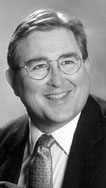This week the Vagabond continues a little-known history of the local Alabama 167th Infantry known as the Rainbow Division, a unit that Rainbow Drive and Rainbow City were named after.
Robert Elton, Carey Forrest “Bill” Elton’s son, donated a yearbook about the Alabama 167th Infantry during 1938 to the Etowah Historical Society. We will be showing this yearbook and more about Bill Elton the next few weeks. This week, scripts from letters of Robert’s mother will be included.
Robert Elton writes:
“I don’t pretend to be an historian. However, I have come to appreciate the research one has to do to get an accurate picture of the past. What you read here is information gleaned both from scant information that my mother left me in a journal and the memories my brother and two sisters passed along to me. My own recollections of dad’s conversations about “the good ole days” may have been damaged in shipment, so to speak.”
Robert’s mother writes in her journal:
“If I had taught school, I wouldn’t have met my husband and had my four children and my eight grandchildren. In 1916 I taught second grade [for] a few months at Ironaton, Alabama. [I] went to summer school at Jacksonville until my mother got sick. She died July 23, 1916.
“I kept house for my father until he married again, then went back to Sylacauga. The First World War was going on, and I learned to knit for the Red Cross, roll bandages, etc.
“I taught school in winter and went to school in the summer at Florence, Alabama.
“I had learned to play the violin well enough to join a small orchestra lead by the Avondale Mill band lea-der, Harry the Gowen. The band room was in the basement of the school where I taught. Harry’s wife, Ethel, also taught there and played violin. Harry’s best friend, C.F. Elton, led another Avondale band at a nearby small town, Sycamore, Alabama.
“[C.F.] came to play trombone with our orchestra. Harry introduced us and suggested he take me home. That was in February 1927, and we were married August 6, 1927.
“We lived in the boarding house with the teachers in Sycamore until April 1928. Then Elton was laid off and we moved to Gadsden, where he hoped to get the job leading the National Guard band. But a local trumpet player got it instead. He knew nothing about directing, so he told Elton he would pay him $25 a month to do it for him. It was during the Depression, so we were glad to get it as it paid the rent.
“Carey Forrest Elton was born in View Florence, Missouri, April 8, 1885. He started working in his dad’s sawmill when he was 16. Later he cooked for a bunch of cowboys. “[He] was always interested in music. [He] played the organ for older pupils when he was in the second grade. [He] would sneak his oldest brother’s cornet and learn to play it. He also played the guitar.
“When he was around 21, [Carey] joined a circus [and] played the steam calliope for 15 years. He played all over the U.S. and made two trips to South America and all the islands nearby and to Panama where the canal was being dug.
“[Carey] was with the Hagenback Wallace show and just missed going on a train section that was wrecked. Lots of his friends were killed. He was with the 101 Ranch Wild West show when Jess Willard owned it and also after [Willard] sold it to Buffalo Bill.
“When I was in high school, I vaguely remember hearing the calliope I but didn’t go to the show. [Carey] was 10 years older than me. He had two brothers and a sister older than he was and one younger brother, who is the only one still living.
“Your granddad died September 13, 1962, the day after your birthday. Your great-grandmother Elton came to live with us in 1929 after her husband died. All our children were born during the Depression.
“We often had visitors, musicians or show people hoping to get work here and also play in the [National] Guard band. They were all unsuccessful, and moved on.
“In 1929-30, granddad taught band in the Decatur, Alabama, schools, driving home on Wednesdays to direct the guards band and back that night to teach the next day.
“Grandma Elton died when Bill was a baby. At that time we lived at 722 Berea Avenue. We started buying the lot at 728 for $1,500. By 1932 it was paid for, and dad planned to build, at first just one story but after the foundation was made, he decided to add two bedrooms under the steep roof. We could get helpers to dig the basement, etc. for $1.50 a day, and they were glad to get it.
“He hired the brickwork done but did almost all the carpenter work [himself], even raised those tall rafters for the roof alone. Occasionally members of the band would help. He did all the plumbing and wiring, and it passed city inspection.
“We moved across lots to the new house in April 1933. Only the two upstairs bedrooms were finished, just the sub flooring downstairs. So we slept upstairs, cooked in the kitchen and ate in the basement.
“The material for the house cost around $5,000 and his salary was $115 a month. Believe it or not, the house was paid for in four years. When we started the garage, we were buying a new car, so we had to borrow $750.”





